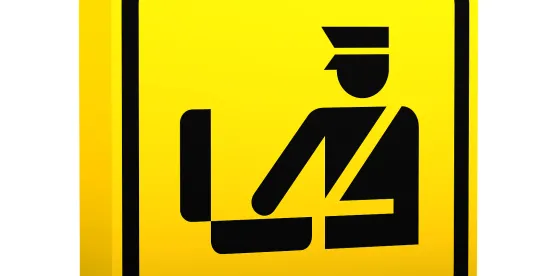As detailed in Part I of our three-part series on Minimizing Customs Enforcement and False Claims Act Risks, the combination of the new high-tariff environment, the heightened ability of Customs (and the general public) to data mine, and the Department of Justice’s (DOJ) stated focus on using the False Claims Act (FCA) substantially increases import-related risks. In light of this heightened risk, Part II and the forthcoming Part III of this series focus on preparing for specific areas where we see heightened enforcement risk, both for Customs and FCA penalties, with this article addressing the most common FCA risks arising from submitting false Form 7501 entry summary information.
Risks Arising from Misclassifications
By far, the most common Customs errors we see relate to misclassifications on Form 7501 entry summaries. If made knowingly, these misclassifications can lead to FCA liability, as demonstrated by a high incidence of DOJ settlements based on alleged known classification errors. Relevant FCA examples include $22.2 million and $2.3 million settlements, each premised on importers knowingly misclassifying entries into lower-tariff classifications to avoid paying duties owed on the companies’ imports.
Additionally, aggressively classifying goods to avoid being subject to the China Section 301 tariffs can create the risk of FCA liability. Such opportunistic classification led to a $22.8 million settlement by an importer that used inaccurate classifications despite receiving repeated CBP notices informing the importer that the classifications it had been using for similar goods were erroneous. The importer continued using the incorrect classifications for over three years, even after an outside consultant confirmed the importer had been using incorrect classifications.
Customs Compliance Response
- Maintain a Regularly Updated Classification Index. Well-supported and consistent classifications are the key to avoiding these types of errors. The most important tool for ensuring accuracy in classifications is a robust and regularly updated Customs Classification Index, which should list the HTS classification for regularly imported SKUs while incorporating support for classification decisions made, including an application of the Customs General Rules of Interpretation, advisory opinions, responses to protests against liquidation, and other relevant support.
- Conduct Classification Reviews. We often find that importers leave classification decisions up to customs brokers, assuming they are experts and responsible for identifying the correct codes. Customs, however, places full responsibility for the accurate submission of all Form 7501 information on the importer of record, not the broker. Periodically review your classifications, especially for frequently imported items, to ensure accuracy.
- Evaluate Classification Accuracy in Post-Entry Reviews. Customs allows importers 310 days after entry to fix any classification errors. Conduct post-entry checks to confirm the accuracy of all submitted information, and use post-summary corrections to correct any errors, including misclassifications, before liquidation. This will help catch errors and, where corrected, undermine FCA scienter.
- Review Tariff Engineering. With tariff rates rising, Customs is aggressively looking for importers who have engaged in opportunistic classification to try to lower import charges. This includes a special focus on importers who have changed their classifications after the imposition of new tariffs. This does not mean importers should view themselves as locked into adverse and incorrect classifications. They should, however, adequately document any classification changes and be prepared to respond promptly to Customs inquiries.
Risks Arising from Misrepresenting the Physical Characteristics of Imported Goods
Making known misrepresentations to incorrectly claim a lower tariff classification can lead to FCA liability. For instance, an importer of brake parts settled an FCA case alleging it knowingly misrepresented the physical characteristics of its entries (claiming they were duty-free unmounted brake pads rather than mounted brake pads subject to a 2.5% classification) for $8 million.
Customs Compliance Response
- Confirm Accuracy of Factual Support for Classifications. In most cases, classification is determined by (1) the physical attributes of the product and, in certain cases, (2) the primary use of the product. Ensure you have accurate backup and consistent classification for each of these issues.
- Document and Retain Classification Decisions. Ensure you maintain detailed records for all classification determinations, and keep them for at least five years from the time of entry.
Risks Arising from Improper Country of Origin Declarations
Because of the imposition of special Section 301 tariffs on China, the number of importers caught making errors relating to declaring the wrong country of origin (COO) has sharply risen. The imposition of reciprocal tariffs only magnifies the importance of the COO. Generally these cases involve imported goods that were assembled in third countries using parts and components from a high-tariff country. In these situations, careful analysis is required to ensure there is sufficient manufacture, value added, and change in the name, character, and use of the product so the result is a “substantially transformed” product that is a new and different article of commerce.
FCA cases illustrate the twin risks that can arise from incorrect COO declarations. In 2021, the DOJ settled an FCA matter for $160,933, alleging the importer knowingly failed to designate that certain imports were manufactured in China, thus evading Section 301 duties.
Customs Compliance Response
- Confirm Accuracy of Substantial Transformation Analysis. One of the highest-priority areas of Customs scrutiny is to find instances of importers evading customs duties either by transshipping through lower-tariff third countries or by shipping parts and components to a third country and then engaging in only minor assembly operations (e.g., from China to another Southeast Asia country). If the goods are not substantially transformed into a new and different article of commerce, then they cannot claim the lower-tariff COO. Review all instances where parts and components from a high-tariff country, like China, are used in further manufacturing in a lower-tariff country. Ensure there is a reasonable basis for the COO declaration, and document the analysis in case of Customs inquiry.
Risks Arising from Undervaluation
Failing to declare the full value of entries is another common error. Most importers use transaction value, which requires the importer to start with the price actually paid or payable, add certain mandatory additions (e.g., the value of assists and royalties), and accurately reflect any allowed voluntary deductions. Recent examples include $217,000, $729,000, and $1.3 million settlements of allegations relating to known under-declared entry values resulting in underpaid tariffs, as well as a $3.6 million settlement of civil claims resulting from the DOJ joining an FCA whistleblower lawsuit. An additional sobering example is a settlement of claims against an importer that knowingly undervalued its goods through the remedy of losing all import privileges.
More specifically, the known failure to include assists (i.e., customer-provided production aids such as tools, dies, and molds) within the entered value can incur FCA liability. Where a U.S. company provides such assists, it needs either to declare the full value of the assist on the first entry or set up a system to attribute the full value of the assist over the useful lifetime of the product, thus declaring it piecemeal over time. These values do not show up on commercial invoices, making it easy to forget to include this mandatory addition to entered value. But the risks of knowingly failing to do so are demonstrated by two FCA settlements of $4.3 million and $7.6 million for the alleged failure to include assists in the entered value.
Customs Compliance Response
- Understand How to Calculate Entered Value. Most companies use transaction value to determine the entered value. Valuation is complicated in situations involving post-entry price adjustments, cash or quantity discounts, indirect payments, exchange rate conversions, and other tricky areas. Ensure valuation is calculated correctly for all entries, including for the inclusion of off-invoice mandatory additions to value.
- Establish a System for Identifying and Tracking Assists, and Consistently Follow It. Importers should have a system for systematically identifying and tracking assists, which can be as simple as a spreadsheet. If this historically has not been done, a review of a company’s trial balance ledger can potentially identify historically provided assists. All assists either should be recognized on the first entry of the applicable universe of goods or apportioned over the expected useful lifetime of the assist. If the latter method is used, establish a system for tracking all relevant entries benefiting from assists and consistently add them when calculating the entered value. Share such information with your customs broker to implement a secondary check.
Risks Arising from Improper Claims of Preferential Treatment Under Free Trade Agreements
Another common error we see is failing to meet free trade agreement (FTA) requirements, such as failing to work through the COO requirements. Along these lines, in one FCA action an importer paid $22.2 million to settle allegations that, among other things, it knowingly claimed improper preferential treatment under FTAs.
Customs Compliance Response
- Always Have Certificates of Origin On Hand at Time of Entry. One of the most common errors we see in customs audits and disclosures is one of the simplest to fix: Ensure that you always have the USMCA certificate of origin available at the time of importation. Under the USMCA, it is not possible to create these after the time of entry.
- Apply Correct Country of Origin Principles. FTAs include different COO principles. These generally are based on a tariff-shift analysis, which is viewed as providing more certain outcomes than the more subjective substantial transformation test commonly applied by Customs. Certain products, such as automotive products under the USMCA, also have special rules for determining preferential status. Note as well that it may be necessary to apply FTA principles to determine the COO for purposes of paying normal Chapter 1-97 duties while applying substantial transformation principles for determining the country of origin for special tariffs, such as section 232 or 301 tariffs imposed by President Trump.
Risks Arising from Failure to Pay Antidumping and Countervailing Duty Orders (AD/CVD Orders)
In addition to the normal Chapter 1-97 tariffs, the U.S. government imposes a parallel set of duties under more than 600 AD/CVD orders. Because AD/CVD tariffs often are very high, failure to properly declare and pay all AD/CV duties can quickly run up tariff underpayments.
As a result, one of the most common Customs FCA claims is for failing to pay AD/CV duties. An importer of home furnishings agreed to pay $500,000 to resolve allegations that it violated the FCA by knowingly making false statements on customs declarations to avoid paying AD duties on imports from China, with four other importers agreeing to pay $275,000, $5.2 million, $10.5 million, and $15 million based on alleged known classification failures based on the same order. Three other importers paid settlements of $2.300,000, $650,000, and $100,000 to settle allegations that they had knowingly evaded AD duties under the aluminum extrusions AD duty order, while another paid $45 million to resolve allegations that it knowingly misrepresented the COO to evade AD/CV duties.
Customs Compliance Response
- Use HTS Screening. The scope of an AD/CV duty is determined by its written scope, not whether it falls within any given HTS subheading. Nevertheless, every order provides HTS subheadings for the convenience of importers. Screen all entries against these HTS subheadings as an initial check, and follow up on any potential matches.
- Be Wary of Counter-Intuitive Coverage of AD Duty Orders. Be aware that certain AD/CVD orders, such as the aluminum extrusions order against China, are not susceptible to HTS screening and require individual examination. Also, consider that certain AD duty orders, such as the one on solar panels, have tricky rules for determining the product scope. Learn which orders are of particular relevance for your import profile and carefully screen all potential matches against them.
Risks Arising from Misapplying Customs Duty-Free Exemptions
A number of Customs programs can result in duty-free entries, such as U.S. goods returned and the Generalized System of Preferences. Illustrating the risks inherent in misapplying duty-free exemptions, importers paid $610,000 and $908,100 to settle allegations that involved “improperly evad[ing] customs duties … breaking up single shipments worth more than those amounts into multiple shipments of lesser value in order to avoid the applicable duties.”
Customs Compliance Response
- Carefully Confirm Eligibility Under All Tariff-Saving Programs. Each tariff-saving program has its own rules, which can include special eligibility requirements. Carefully review these rules and document their applicability before claiming preferential treatment.
Risks Arising from Failure to Appropriately Value Goods from Related Parties
Another common problem is that importers either do not have a transfer pricing study in place to support the arms-length nature of their pricing when purchasing from affiliates, or they improperly rely on an IRS transfer pricing study (which is impermissible because CBP has specific standards for transfer pricing studies that differ from the IRS standards). Although we are not aware of any FCA case alleging improper pricing from related parties, this conduct is common and can potentially impact a large volume of entries, making a known misdeclaration a risk factor for potential FCA liability.
Customs Compliance Response
- Confirm the Existence of a Customs-Specific Transfer Pricing Study. If you do not have a customs-specific transfer pricing study in place, consider conducting or hiring a customs accounting specialist to prepare a bridge memorandum to analyze the underlying data. If you do not have an IRS transfer pricing study, then obtain one (and also take care of your IRS transfer pricing requirements).
- Confirm the Consistent and Accurate Application of the Results. It is important not only to have a customs transfer pricing study but also to consistently apply its results. Ensure the entered value from every import from a related party is confirmed against the conclusions of the study.
In sum, DOJ has a rich history of using a wide variety of issues to support FCA claims, especially relating to the known false submission of Form 7501 entry summary information. By considering the compliance responses outlined above, importers can ensure that their entry summary information is accurate in the first place, to best avoid known false submissions. Part III of this series will turn its focus to FCA risks arising from improper management of import operations.








 />i
/>i

